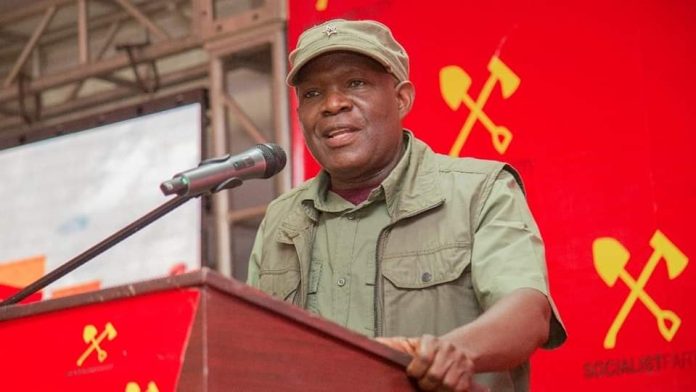The security and humanitarian conditions in the Democratic Republic of Congo (DRC) is worsening.
Even the United Nations have warned of the deteriorating situation as the rebels keep making gains with hundreds of thousands of civilians displaced from their homes. The head of the UN’s DRC peacekeeping mission MONUSCO, Bintou Keita, was quoted reporting to the UN Security Council last week that the worsening security situation and a humanitarian crisis is nearing catastrophic levels.
“More than 7.1 million people have been displaced in the country. That is 800,000 people more since my last briefing three months ago,” Keita stated. She further told the UN on Wednesday last week that the armed group [M23] was making significant advances and expanding its territory to unprecedented levels.
On March 23, 2024, Southern African Development Community (SADC) leaders reiterated their commitment to providing both diplomatic and military support to find lasting solutions to the conflicts in the DRC and Mozambique. The summit received updates on the peace and security situation in the two troubled spots of the region, reaffirming the regional bloc’s support to the two governments towards attaining lasting peace, stability, and security.
In a communiqué released after an extraordinary SADC double troika summit held in Lusaka, the SADC heads of state and government also pledged to intensify public diplomacy on the role and successes of SADC peace support missions in the two countries to avoid negative narratives that may compromise the success of the missions.
In December 2023, we implored SADC to help establish the will of the people in the last DRC elections. This was after it became apparent that the incumbent had lost the elections, and there were desperate, reckless and restless attempts by the governing party, working in cohorts with the electoral body (CENI) to subvert the will of the people and deny the Congolese people their leader of choice.
By the way, the DRC elections were marred with massive and evident electoral fraud such as polling stations opening late and some not opening at all on voting day; malfunctioning electronic voting systems; police confiscating electronic voting machines in certain polling stations; violence; ruling party candidates and supporters being found with electronic voting machines and ballots in their residences, and so on and so forth.
We urged SADC to urgently intervene and avoid any civil unrest or possibilities of plunging the entire nation into chaos. We reiterated that it was in the best interest of SADC to proactively assist the DRC before the situation degenerated into chaos and that if the DRC imploded, it was the region that would suffer the consequences of the humanitarian crisis that will unfold.
Clearly, what we dreaded and warned against is what is currently happening in the DRC. There is civil unrest and instability in the Eastern DRC. After stealing the vote, the ruling elite is in panic and stranded, and now relying on regional diplomatic and military involvements. They thought they were clever by plotting a sham election, but here we are, the chickens have come home to roost. They have the power and control they so much desired to the extent of even maiming and killing their own people, but they have no genuine mandate of the Congolese people.
Indeed, SADC should intervene and help the Congolese people out of this insecurity and humanitarian crisis but the DRC ruling elite must also be made aware that they caused this upon themselves by fraudulently overturning the people’s victory. Had the last DRC elections been peaceful, free, and fair, this implosion – security and humanitarian crisis – in Eastern DRC would not have reached such levels. There would be greater unity in the country. Today, it’s proving very difficult to get the support of those who were mistreated and robbed of victory in the fraudulent elections.
SADC should also make DRC authorities realise that to achieve peace, security, and stability, they need to sincerely engage all stakeholders – the church, political parties, civil society, and many others. Posturing and acting all-powerful amidst a crisis of this nature will only worsen the situation. SADC will not be able to achieve a purely military victory in DRC. A political solution, settlement is needed. Magnanimity, humility, and maturity is the only guaranteed way to solve these problems.
Further, SADC must endeavour to find another regional head of state and government to lead the regional diplomatic task on the DRC crisis as Mr Hakainde Hichilema – the current Chairperson of the SADC Organ on Politics, Defence and Security Cooperation – is too conflicted. Mr Hichilema will not be able to be neutral in this significant diplomatic process of attaining lasting peace, stability, and security in the DRC.
However, we remain confident that a lasting solution will be found to prevent the security and humanitarian crisis from reaching tragic levels.
Fred M’membe
President of the Socialist Party


